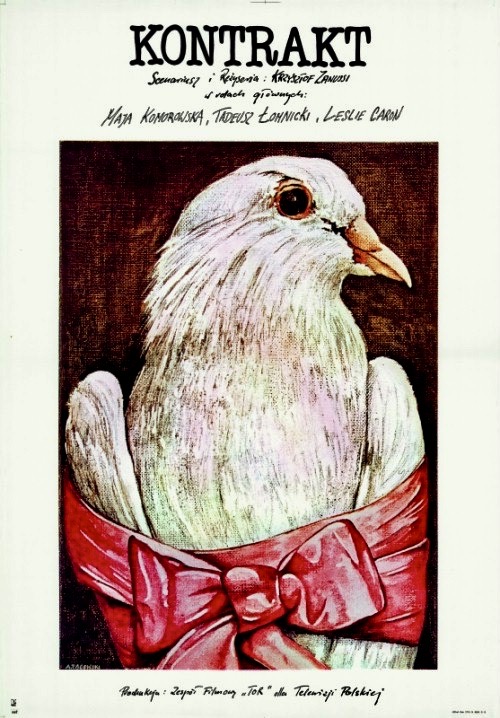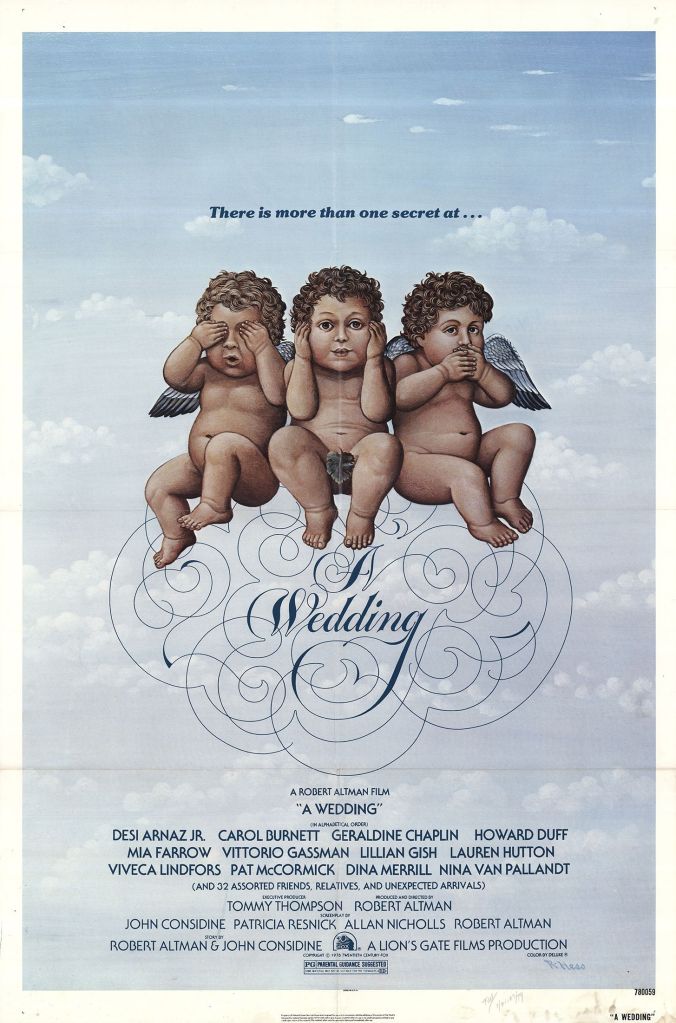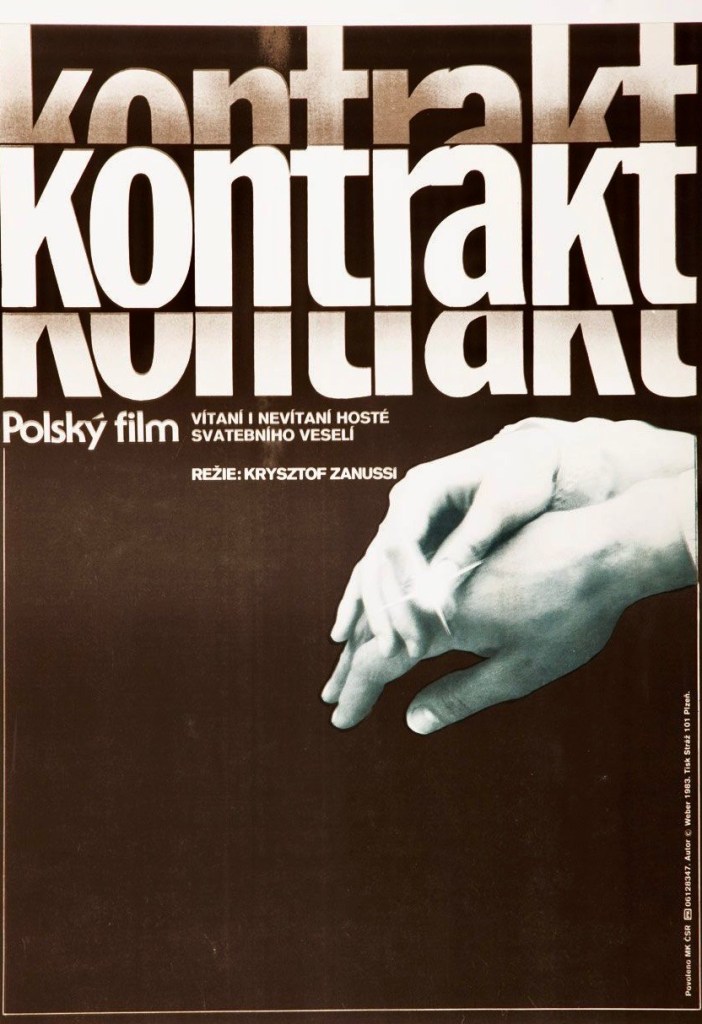I remember the first time I heard about Polish director Krzysztof Zanussi. Friends of mine in Seattle were attendees at the annual Seattle International Film Festival and saw one of his films there in the early 1980s and raved about it. They became fans after that and tried to see everything he did that received distribution in their city. Unfortunately, outside of film festivals, few of his movies enjoyed wide (or any) distribution in the U.S. with the exception of a few art house dates in major cities like New York and Chicago. The first and only Zanussi film I saw was The Catamount Killing, which was released in 1974, but I only caught up with it on VHS in the mid-eighties. It is that rare anomaly in his career – a low-budget crime drama filmed in Burlington, Vermont with an English-speaking cast – and was not a success or even characteristic of his work with the possible exception of one of its themes – guilt and how it can destroy relationships. Only recently I have discovered some streaming sources for Zanussi’s work and my first foray into his past filmography is the 1980 made-for-Polish television satire Kontrakt (English title: The Contract), which was filmed in and around Warsaw and features an international cast of Polish, English and French actors including Leslie Caron in a key role.
The story goes that Zanussi saw Robert Altman’s A Wedding (1978) and thought it was a disappointment in comparison to other Altman films. Nevertheless, he liked the basic concept and started to reimagine the wedding as a metaphor for Polish society with its multi-generational cast of characters from all walks of life with an emphasis on the bourgeoisie families at the heart of the event. Altman’s film had the feel of an improvisational, free-form comedy strung together in vignette form. It was a mostly lighthearted, amusing trifle that went sour in the end and failed to fully develop any of its characters. The Contract, on the hand, takes the Altman template and makes it richer, more chaotic and satisfying by introducing the main players early in the story and developing them in such distinctive ways that by the time the film hits the mid-point, the viewer has a strong sense of who everyone is, what is at stake and the various tensions that exist between the marrying couple, their future in-laws and friends. Like Altman, Zanussi also uses the social situation of a wedding to include satirical commentary on numerous topics; in this case, the targets are morality, class differences, family feuds, religious hypocrisy, government bureaucracy and political repression. It sounds like a lot to tackle but it is so nimbly performed it easily avoids message mongering or pretentiousness.
The Contract opens with a scene which seems to have nothing to do with the events that transpire but actually sets the tone for the calamitous events that follow. An elderly woman is walking through a snow covered forest intent on feeding the wild birds. She is suddenly startled and drops her sack of bird feed as a boy on a runaway horse rushes past her followed by a pack of pursuing riders trying to stop them. As she begins picking up the fallen seeds, two riders in a luxury car stop to comment on the situation but the old woman only offers that the wild birds were scared off by both the horse riders AND their fancy car. This epilogue makes more sense in retrospect when you consider how the wedding begins with a rehearsal and then without warning suddenly falls apart at the actual event and keeps getting more complicated and outrageous before ending in an enigmatic and haunting final shot.
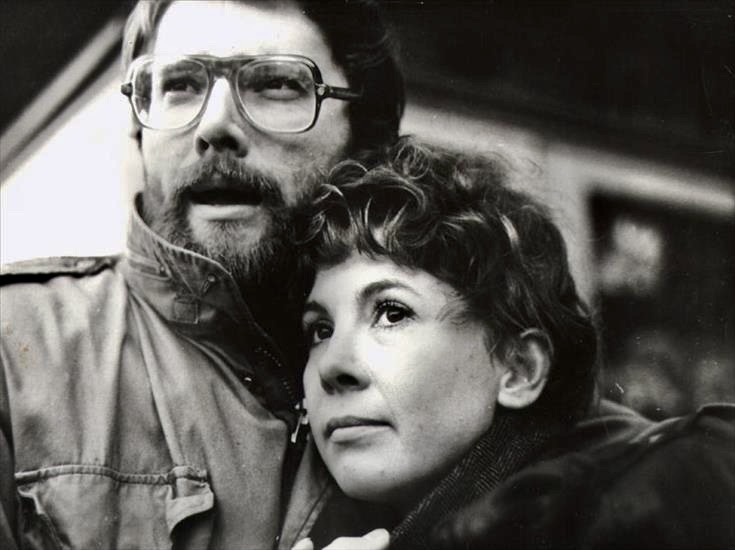
At the center of The Contract are Piotr (Krzysztof Kolberger) and Lilka (Magdalena Jarosz), a young couple who have been living together for a year or so but have decided to get married for reasons that seem to be based more on professional and financial concerns than long term commitment (In Poland at that time, married couples were eligible for affordable housing before single people through the bureaucratic mishmash of the public housing system). Adam (Tadeusz Lomnicki), Piotr’s father, is a wealthy doctor and considered a member of the “red bourgeoisie.” In other words, an individual who enjoys a higher standard of luxury and privilege than the majority of people in a communist controlled country due to his strong connection with influential party members and black marketers. It is Adam who agrees to host the married couple’s after-party at this chic villa in the woods and among the various other attendees are Dorota (Maja Komorowska), Adam’s young, second wife, Boleslaw (Janusz Gajos), Lilka’s glum, disapproving father, Penelope (Leslie Caron), the wife of Adam’s late brother and a former ballet dancer, and Patricia (Christine Paul), her rebellious daughter.
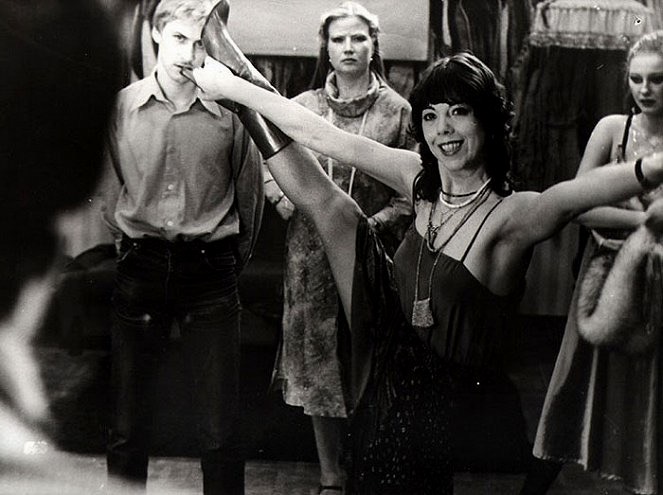
[Spoilers ahead] Even prior to the rehearsal ceremony, the married couple begin to encounter problems that only make them question their decision, starting with the priest who will perform the ritual. Piotr is an atheist but Lilka is a Catholic girl and feels impelled to have the church sanction their union. Before they can receive his official blessing and certification, they must answer certain questions which only create more complications such as Piotr’s comment that they don’t want to have children. The priest says that statement makes this “whole sacrament a fiction. If you break the very purpose of it, you will force your wife to use contraception.” And so it goes.

The pressures of the upcoming event take an emotional toll on both Piotr and Lilka and, during the official ceremony, Lilka cracks under the strain and bolts from the church, leaving Piotr stranded at the altar. He promptly goes off and gets drunk but Adam dismisses the botched affair as a joke (“If they like each other, they fight a lot”) and invites everyone back to his villa to celebrate. While some attendees are scandalized by the incident, most of the wedding party is only too happy to party and Adam’s villa soon becomes a raucous happening with new characters arriving (like the members of the local ballet academy) to turn the celebration into an orgiastic blowout.

Crazy things happen. A group of partiers strip naked and enter Adam’s sauna only to emerge later and frolic in the snow in front of some shocked observers. Adam tries to hypnotize his sister-in-law in an attempt to seduce her but is interrupted by the announcement that a thief is in the house with many people complaining that personal items have been stolen (the culprit turns out to be a compulsive kleptomaniac and former celebrity). Meanwhile Patricia shows up drunk with a student she picked up and they hole up in the bathroom having sex in the tub. Adam’s outdoor dogs get loose in the house, a horrid odor is revealed to be a dead cat hidden under a rug and Piotr awakes from a drunken stupor and tries to burn the house down. Then Lilka shows up seeming more lost and confused than ever as Dorota tries to comfort her and make sense of the chaotic evening.
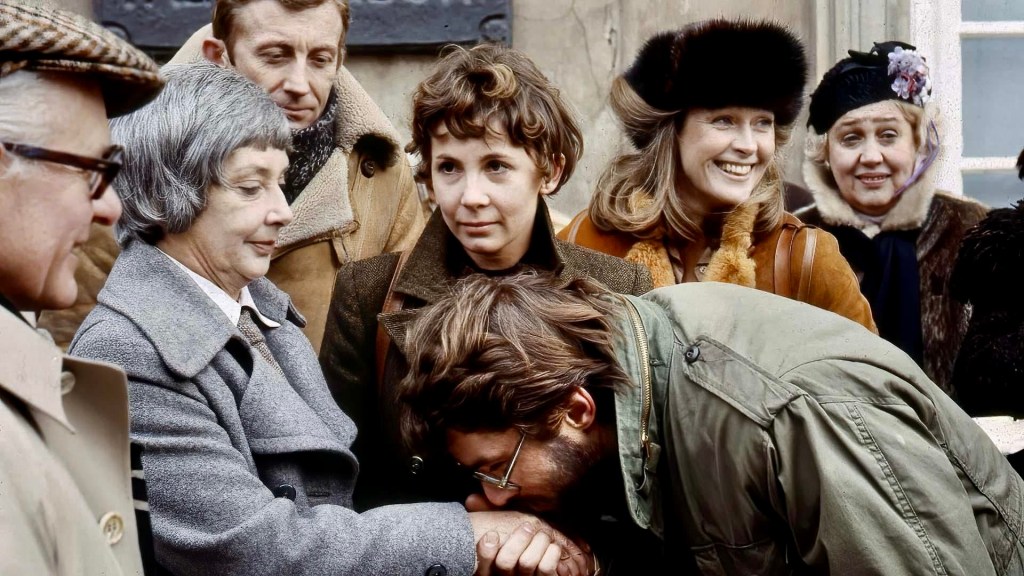
Everyone gets their moment to shine in The Contract and the ensemble acting couldn’t be better or more diverse. Leslie Caron, looking chic and lovely, is both delightful and tragic as an aging diva who hates being out of the spotlight but it is Maja Komorowska as Dorota, who is the true heart and soul of the film. Facing every impending disaster with a brave smile and a seemingly calm demeanor, she manages to patch up every misunderstanding or potential problem with a temporary solution. Even though she realizes her husband Adam is a philanderer with secrets of his own, Dorota is determined to play the perfect hostess and jumps into the fray, keeping her true feelings in check.
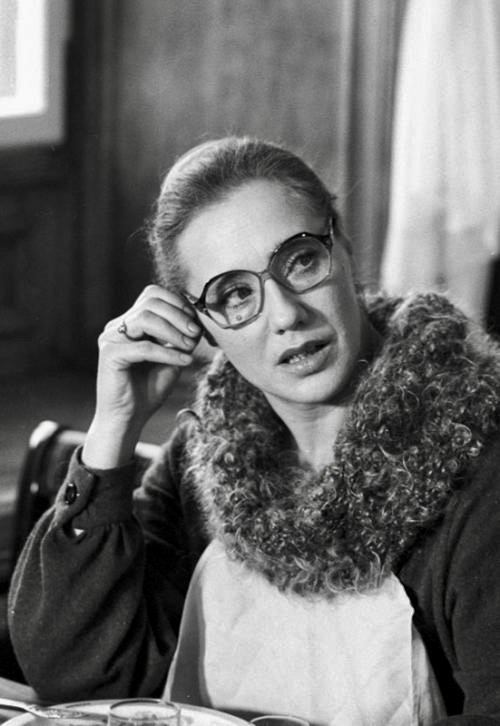
Yet, despite the tensions and acrimonious relationships between certain family members and the wedding that doesn’t happen, The Contract avoids heavy drama and works as a fast paced, consistently amusing satire that pokes fun at a wide variety of topics such as the Polish upper class making derogatory comments about other nationalities as if they are superior. The film enjoyed a theatrical release in the U.S. and received mostly rave reviews from critics such as Roger Ebert. It is still considered a highpoint in Zanussi’s career during the early eighties and this entry, in The Faber Companion to Foreign Film (by Ronald Bergan and Robyn Karney), is a perfect encapsulation of The Contract’s appeal: “This is Zanussi at his least metaphorical, making an ironic, even comic, film that examines a sector of well-to-do Polish society which is, inevitably, on the brink of collapse. Interesting and entertaining, the film has an authentic cosmopolitan flavour, with dialogue moving easily between Polish, French, English and German.”
The Contrast represents Zanussi’s last burst of creative freedom in making films in Polish for a long time because the movie was completed just before the government became more repressive after martial law went into effect. Poland would not throw off the shackles of communism until 1990 when it officially became a democratic republic. In the interim, Zanussi continued to make films in other countries such as his follow-up movie to The Contract, From a Far Country (1981), a biographical drama about Pope John Paul II financed by Italian-UK production money. Later efforts include Imperative (1982), a West German production with Leslie Caron returning in a supporting role, A Year of the Quiet Sun (1984), a WWII romance, and The Touch (1992), starring Max Von Sydow as a classical composer and former Holocaust survivor.
Zanussi got his start as an amateur filmmaker and eventually abandoned his studies in physics and philosophy to enter the National Film School in Lodz (Other graduates include Andrzej Wajda, Krzysztof Kieslowski and Roman Polanski). He made several short films before making his directorial debut in 1969 with The Structure of Crystal. It wasn’t until he made Zycie Rodzinne (English title: Family Life, 1971), however, that Zanussi experienced a career breakthrough and emerged as an international artist earning his first Palme d’Or nomination at the Cannes Film Festival.
The seventies ushered in Zanussi’s peak years in Poland and his films during this period are often categorized as part of the “cinema of moral concern” and usually deal with young protagonists questioning their ideals and values. Among his most critically acclaimed work from this period are The Illumination (1973), A Woman’s Decision (1975), Camouflage (1977), The Spiral (1978) and The Constant Factor (1980), which won the Grand Jury Prize and the Ecumenical Jury prizes at Cannes. And even though The Contract was a made-for-television feature, it won three awards at the Venice Film Festival, was selected as one of the top foreign films of 1981 by the National Board of Review and a nominee for the Gold Hugo award at the Chicago International Film Festival. Zanussi was also awarded a special award by the New York Film Critics Circle for his work on The Contract and Camouflage.
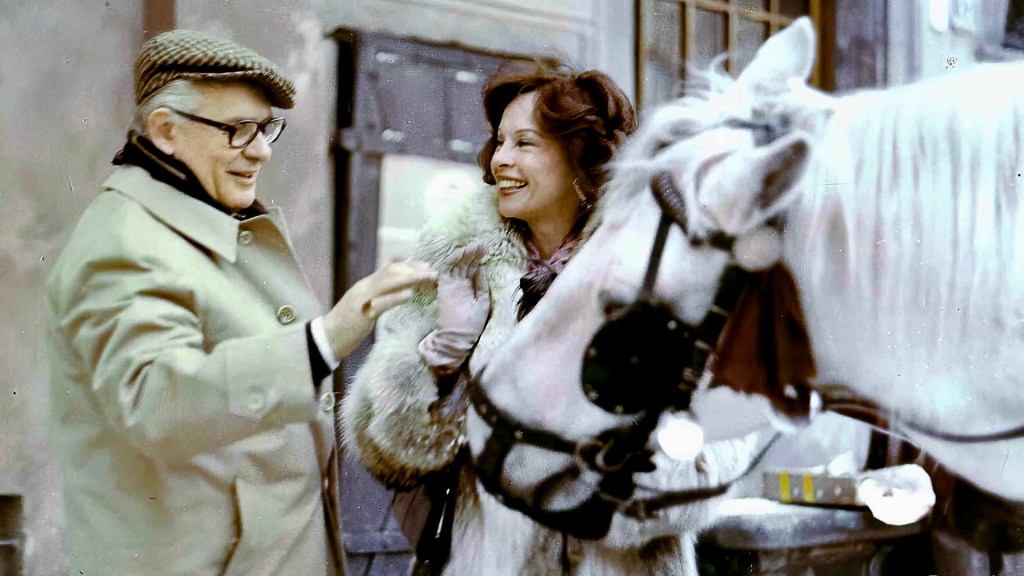
You would think that after such an illustrious career with more than eighty movie and TV credits in his filmography, Zanussi would be better known and his work more easily accessible but that is not the case. However, you can stream some of his most acclaimed features on MUBI and Amazon Prime such as Family Life, The Illumination, and The Constant Factor. Second Run DVD in the UK carries some of his titles in their collection like The Illumination (if you own an all-region DVD player). Cave of Forgotten Films also offers streaming options for The Contract and A Woman’s Decision in their library. Happy hunting!
Other links of interest:
https://mubi.com/en/notebook/posts/hanging-on-the-word-a-conversation-with-krzysztof-zanussi

